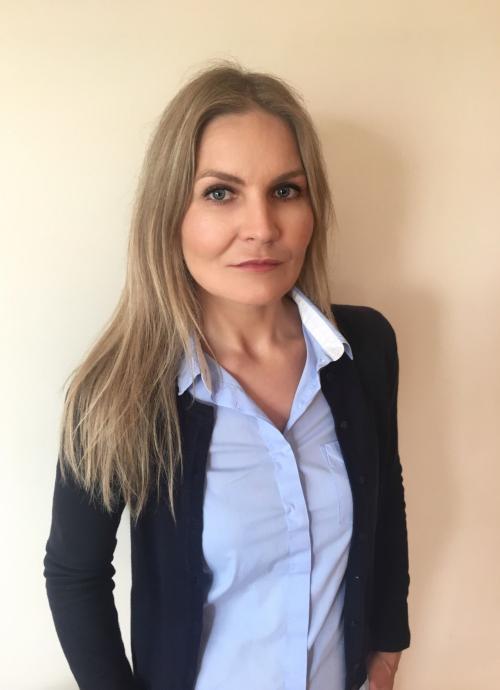Neringa Latvyte-Gustaitiene from the Vilna Gaon State Jewish Museum: Involved in EHRI Communication and Training

A member of EHRI Work packages on Communication and Dissemination (WP2) and Training and Education (WP4), Neringa Latvyte-Gustaitiene is chief of the History Research Department and acting head of the Memorial Museum of Paneriai at the Vilna Gaon State Jewish Museum, Lithuania, as well as a PhD candidate at the Communication Faculty of the Vilnius University.
In 1999, I started working as an historian at the Holocaust exhibition in the Vilna Gaon State Jewish Museum. In 2002, I published my first book about the Holocaust in the Trakai region. In 2010, I was appointed as a chief of the History Research Department and was a curator of the renovation of the Holocaust exhibition and the editor of the exhibition’s catalogue.
In 2012, I published my second book, which subject was the Holocaust in Ukmerge, and was the curator of two traveling exhibitions, several projects, and the manager of the database on Holocaust victims in Lithuania. My work at the museum is focused on finding, gathering and analysing Holocaust and Holocaust-related archival sources in Lithuania and abroad.
When Dr. Veerle Vanden Daelen, who is the coordinator within EHRI of the identification and investigation of Holocaust-related sources, contacted me in January 2013, I was already aware of the EHRI project. Her strong motivation and dedication to EHRI encouraged me to contribute with information on the Lithuanian Holocaust archives to this project. The support which I received from the EHRI community was not only very important for me personally, but it was also important for such a small Eastern European country as Lithuania to become a member of such an ambitious international project.
EHRI has been an influential part of my carreer, leading me to meet with professionals, to collaborate with academics, and to start my PhD studies on the communication of the Holocaust memorial places. It has enabled me to share my experience with young researchers, to present the opportunities of the online resources to the local community, and to try to make Holocaust archives and documents visible, accessible and used more often.
As a member of EHRI, I continue to collect and prepare data on the Holocaust related archival sources and collections for the portal. I am also involved in the communication and dissemination of the project. As a member of the Training and Education work package, together with colleagues from the Institut für Zeitgeschichte in Munich, we organized a summer seminar in 2016 entitled: “Languages, Cultures and Perspectives – How to Read Holocaust Sources” which was held in Vilnius. In 2017, with colleagues from the Mémorial de la Shoah, we organize another summer seminar entitled: “The Nazi Occupation and the Extermination of the European Jews: Sources, Methods and Interpretations: A Focus on Italy and Lithuania”.
I am a proud member of EHRI and I am grateful to the project for its many perspectives and multicultural atmosphere, for connecting people, and for the possibility to improve skills and grow as a professional. It has provided future possibilities, the opening up of Holocaust archives and collections in Eastern Europe where Holocaust memory was suppressed for quite a long time, and EHRI has also given me the very warm feeling of being part of a big family.